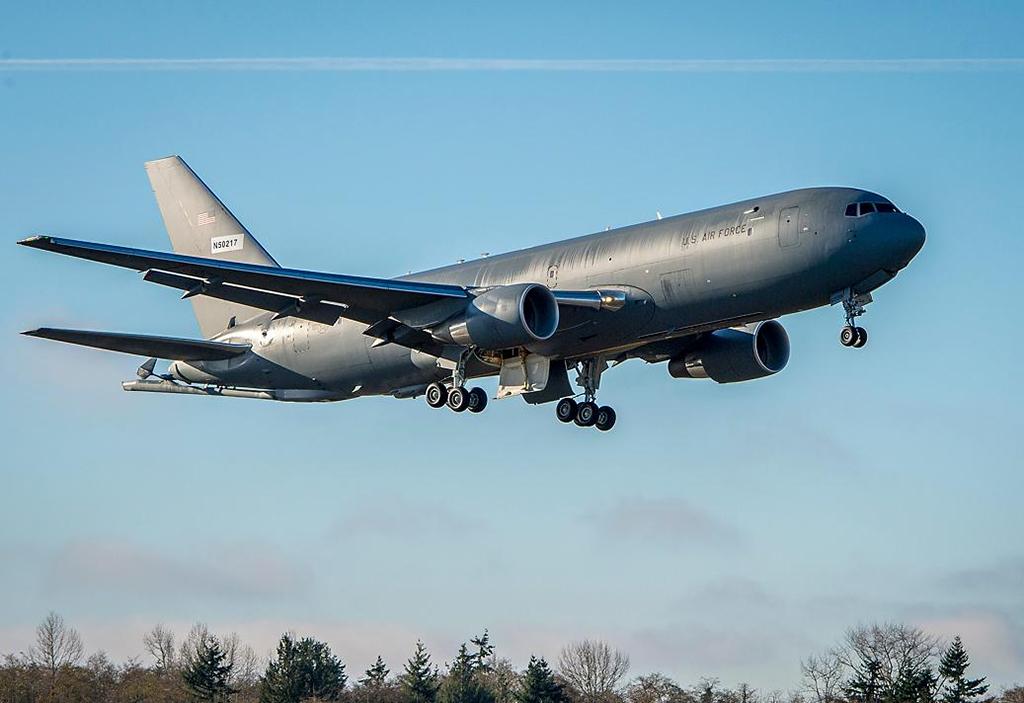
Boeing has installed valves on seven KC-46A Pegasus aircraft plugging the leaky fuel system the U.S. Air Force has deemed a major deficiency.
The service upgraded the existing deficiency for the KC-46 fuel system to a Category 1 on March 31. The Air Force program office first identified “excessive fuel leaks” in July after an air refueling test. A Category 1 deficiency means the government has identified a risk that jeopardizes lives or critical assets.
The fuel system does not pose a “safety of flight issue” because the leak is slow, Will Roper, assistant secretary of the Air Force for acquisition, technology and logistics, told reporters April 2.
However, the deficiency is “causing significant issues in the field” that are impeding the mission, he said. It is still unknown why the Air Force elevated the deficiency eight months after it was identified, especially since the problem does not pose a safety risk.
“The fuel system is a production quality deficiency and those are declared by the field, and then they’re evaluated by the program office,” Roper said. “In this case, the fuel leaks are just creating a lot of extra work that can’t be done in the field.”
The fix is more complex than installing valves —the part must fit properly because the fuel system is designed to flex and move with aircraft. There are numerous “flexible valves” that if not installed properly will cause a fuel leak, Roper said.
Boeing is allowing the Defense Contract Management Agency to inspect the valve installation, which provides an additional quality control layer.
“We’ve gone through a lot of issues at the Everett facility with this and other things, and Boeing is really committed to up their quality of workmanship,” Roper said. “I think this just goes in the same category of there needs to be a focus on quality at the production facility.”
Boeing is contractually obligated to rectify this deficiency at no additional cost to the Air Force.
“We are disappointed to learn of this development and are already implementing assembly and installation improvements to correct the issue,” Boeing spokesman Larry Chambers said in a statement to Aerospace DAILY. “We have repaired several of the airplanes and will continue to implement repairs as needed. Boeing is working with urgency to address the issue.”





